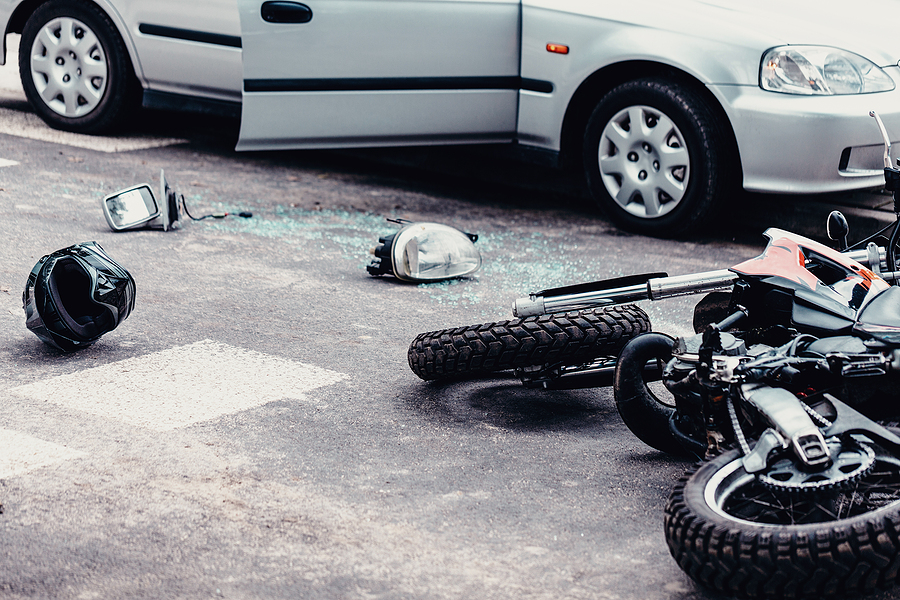Whether you’ve just started out riding a motorcycle or you’re a seasoned veteran, the risk of an accident is always there. Since motorcyclists are so much more vulnerable than drivers and passengers in four-wheeled vehicles, their injuries tend to be worse when a collision occurs. The consequences of those injuries can be terrible, which is why you need to seek medical treatment after a motorcycle accident. It will be critical to your physical health, as well as the health of your case if you choose to take legal action against the at-fault driver. The next will be to get in touch with an attorney as soon as possible.
Sand Law has a team of skilled legal representatives who have years of experience helping riders get the compensation they deserve. Once we gather all of the facts, we’ll be able to give you a good idea of how much money you may be able to receive – and we’ll do everything we can to get it. Contact us online or call 651-291-7263 for a free case evaluation to learn more.
We’ve practiced law for a long time, and we’ve received a lot of questions from clients regarding their medical treatment after a motorcycle accident. The following are the answers to just a few of them.

Do I Need to Seek Medical Treatment After a Motorcycle Accident?
Unquestionably, the answer to this question is “Yes.” In fact, as stated earlier, it’s the first thing you need to do if you’ve been involved in a motorcycle accident. Even if you think you’re fine, you still need to get medical treatment after a motorcycle accident. If you don’t, you’ll have no idea of how badly you may have been hurt. There are many kinds of injuries that can take a long time before showing symptoms.
But you’ll also need to do this if you plan on seeking justice. Not getting timely medical attention will make it much harder for you to win your case.
Does it Matter Where I Go?
If you were seriously hurt, the ambulance dispatched to the scene probably took you to the emergency room. Once you received the immediate treatment you needed, then the doctor more than likely referred you to an orthopedist or neurologist for further attention. Orthopedists deal with bone and joint injuries, while neurologists help people suffering from head injuries.
Whatever the ER doctor recommends, do what they suggest. Seeing the right doctor will be key to recovering fully.
Do Doctors Have Motorcycle Bias? Could this Affect My Claim?
Unfortunately, motorcycle bias is a real thing – even among people who are well-educated and should know better, such as doctors. You might have been following the law to the letter, and riding in the safest manner possible. That might not matter if you go to a doctor who thinks that riding a motorcycle is reckless and dangerous. The doctor may assume you did something wrong and might even include that speculation in your medical records.
But even if that happens, that doesn’t have to mean your case will be weakened. However, this makes it even more important to hire an attorney who has an extensive background in helping clients hurt in motorcycle accidents. They will be able to uncover the evidence needed to prove you did nothing wrong – regardless of what the doctor says.
Do I Need to Tell My Doctor I Was in a Motorcycle Accident?
Even if you’re worried that your doctor’s motorcycle bias could hurt your case, you want to be as honest and forthcoming as possible regarding how you were injured. Insurance companies will use anything and everything they can to deny your claim. If you’re not straightforward with your doctor, you can bet the insurer will use that against you. Again – the truth is on your side, especially if you hire the right attorney.
Can I Talk to my Doctor About the Details of the Crash?
Yes. In fact, you should share all of the details. The doctor will need as much information as possible in order to give you the right treatment. Don’t concern yourself as to whether or not you think your doctor is biased. Your attorney will know how to deal with that bias if it exists. However, you shouldn’t speak with your doctor about fault or whether or not you think you did something wrong. They only need to know the facts.
Do I Need to Follow My Treatment Plan?
We can’t stress enough how important it will be to follow the orders of your doctor. Sure, that’s a cliché, but it’s true. You’ll have to follow their plan to the letter if you’re going to have the best possible chance of achieving a full recovery.
But it will be just as important that you do so when it comes to your case. If you fail to, for example, go to physical therapy, the insurance company will know. It will argue that you really weren’t injured as badly as you claim, so it shouldn’t have to pay what you’re seeking – and they’ll have a very good argument.
How Do I Keep Track of Bills?
It will take some effort, but it will be worth it. The better organized your bills are, the better job you’ll be doing of documenting your injury and all the treatment you’re receiving. This will help your attorney determine how much to demand from the insurance company.
Try keeping a journal, jotting down notes about each appointment, every physical therapy session, and anything else that has to do with your treatment. You should also consider taking a picture of each bill to have an electronic record of your expenses. Keep all of those bills in a file that can be easily accessed.
If you have any questions about how to do this, one of our attorneys will be glad to help.
Will the At-Fault Party Pay All of my Medical Bills?
If your case is successful, the at-fault party’s insurance company will pay for your medical expenses and your other financial losses, known as “damages.” Your attorney will know how much money you should get once they know everything about the type of treatment you’ll need – not just now but also in the future.
Do I Need to Hire a Lawyer After Seeking Treatment?
If you want to win your case, then yes. An attorney with Sand Law will have the skill, experience, and resources needed to give you the best chance of obtaining maximum compensation. You focus on getting better – we’ll take care of everything else.
Call 651-291-7263 or contact us online to schedule a free consultation.

